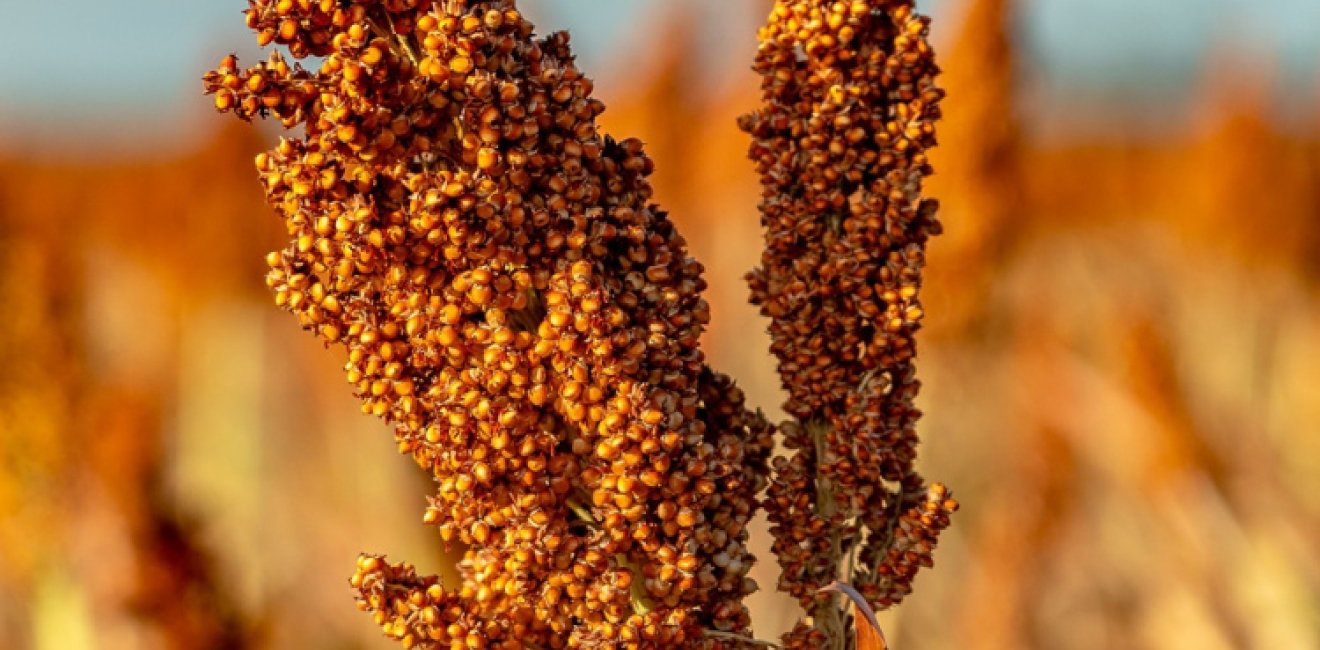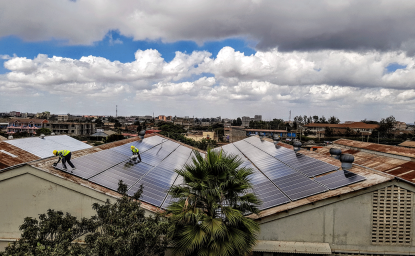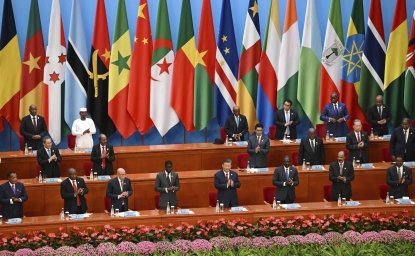
A blog of the Africa Program
Current research shows that climate change brings with it greater unpredictable weather patterns across Africa, leading to more frequent and severe events such as droughts and floods. The agricultural sector bears the brunt of these changes, with decreased rainfall, rising temperatures, rising sea levels, and unpredictable weather patterns adversely affecting crop yields, pest and disease patterns, and overall food security.
Agrobiodiversity is a key factor in the resilience of farmers in the face of a changing climate. Planting a diverse range of seeds enables farmers to navigate unpredictable weather conditions and ensures a variety of nutrient inputs on small acreage plots. Farmers can ensure that some of their crops will survive in the face of unpredictable weather by planting numerous seeds. In the words of Ethiopian farmers Muhammed and Ayalnesh, “It is good to have different varieties of the same seed. Because if we have only one variety and we lose it, that means we are lost.” Furthermore, planting indigenous, naturally drought-resistant or salinity-tolerant crops—like indigenous maize, sorghum, millet, sesbania, or cowpeas–supports farmers' capacity to adapt to the coming crisis. These crops provide essential nutrients, are important to the cultural heritage of communities, are naturally pest resistant, and require low inputs, making them an important component of climate-resilient agriculture and diets.
International Plant Variety Protection Agreements
In 1995, the World Trade Organization (WTO) Agreement on Trade-Related Aspects of Intellectual Property Rights (TRIPS) made it compulsory for all WTO members to adopt some form of Plant Variety Protection (PVP) legislation, with the least-developed countries mandated to do so by 2021.[1] PVP is a form of Intellectual Property (IP) right that provides legal protection to breeders of new plant varieties. Though TRIPS provides some flexibility, allowing countries to determine for themselves (sui generis) how to institute these IP rights, industrialized countries, and seed companies have pressured developing economies to institute strict requirements under the Union for the Protection of New Varieties of Plants (UPOV). UPOV is an intergovernmental organization responsible for implementing plant breeders’ rights. By joining UPOV, countries give up their right to develop sui generis legislation and instead must “harmonize” their national policy with UPOV dictates.[2]
UPOV has undergone numerous transformations, with the most recent and currently in-force rendition, UPOV 91, being the most extreme. UPOV 91 approximates plant breeders’ rights to those of a patent holder, severely restricts farmers’ rights over protected plant varieties, and makes it possible to seek prosecution of farmers engaged in traditional saving, using, exchanging, selling, or propagating farm-saved seed.[3]
The most recent data on continent-wide seed systems, published in 2016, shows that small-scale farmers receive over 90% of their seed from informal systems. Harmonizing national legislation with UPOV 91 thus dramatically changes this landscape, as traditional, informal seed systems can be criminalized. It also greatly influences the types of seeds that farmers can access. Corporate agribusiness works with less than 200 plant species. In overtaking the market and pushing legislation that limits the capacity of farmers to use their seeds, the Food and Agriculture Organization (FAO) claims that the actions of these agribusinesses have led to the extinction of over 75% of traditional seed varieties worldwide in just one century.
Planting a diverse range of seeds enables farmers to navigate unpredictable weather conditions and ensures a variety of nutrient inputs on small acreage plots.
Numerous economic pressures have been exerted on countries to join UPOV. Scholars van der Borght & Ghimire note that “most often (developing) countries accede to the UPOV Convention or adopt even higher standards through bilateral or regional trade agreements, including with the US, the EU, Japan, and European Free Trade Association (EFTA).”[4] The United States African Growth & Opportunity Act (AGOA) is a prime example, as “US trade benefits to 38 AGOA-eligible countries are unilaterally gauged on (the) extent to which they go beyond TRIPS standards of IPR protection.” Other examples of pressure asserted on countries throughout the African continent through trade agreements include the G8 New Alliance for Food Security and Nutrition in Africa (NAFSN), the EU-East African Community Economic Partnership Agreement (EPA), EU-Eastern and Southern Africa EPA, and the EU-ACP Cotonou Agreement, among many others.
Moving Forward by Stepping Back
By incorporating PVP requirements as a part of bilateral and regional trade agreements, industrial economies compromise the inherent flexibility of TRIPS and wield excessive influence over nations in less favorable negotiating positions.[5] To protect food security and ensure resilience in the face of climate change, small-scale farmers must have access to the right to save and use a diverse range of indigenous seeds. International partners such as the United States must thus take a step back and reconsider the impacts of trade agreement requirements on the ground in countries most vulnerable to the climate crisis. Moving forward, global superpowers should allow African nations to develop their own context-specific sui generis PVP legislation, which could better protect the informal, indigenous seed systems and practices that have fed the continent for millennia.
Ms. Amanda Logan Clark is pursuing a dual master’s degree in International Affairs and Natural Resources & Sustainable Development from American University and the UN University for Peace. She is a former Stafford Capacity Building Intern with the Wilson Center Africa Program in Washington, DC.
The opinions expressed on this blog are solely those of the authors. They do not reflect the views of the Wilson Center or those of Carnegie Corporation of New York. The Wilson Center’s Africa Program provides a safe space for various perspectives to be shared and discussed on critical issues of importance to both Africa and the United States.
-
Peschard, Karine, and Shalini Randeria. "‘Keeping seeds in our hands’: the rise of seed activism." The Journal of Peasant Studies 47, no. 4 (2020): 613-647.; van der Borght, Kim, and Saurav Ghimire. "Seeds & Intellectual Property Rights: Bad Faith and Undue Influence Undermine Food Security and Human Rights." In Law and Sustainability: Reshaping the Socio-Economic Order Through Economic and Technological Innovation, pp. 183-208. Cham: Springer International Publishing, 2022.
-
Peschard & Randeria, 2020; O'Grady Walshe, Clare, and Clare O’Grady Walshe. "The Core Dilemma: Seed Sovereignty and Globalisation." Globalisation and Seed Sovereignty in Sub-Saharan Africa (2019): 1-24.
-
Peschard & Randeria, 2020; van der Borght & Ghimire, 2021
-
van der Borght & Ghimire, 2021
-
van der Borght & Ghimire, 2021
Author


Africa Program
The Africa Program works to address the most critical issues facing Africa and US-Africa relations, build mutually beneficial US-Africa relations, and enhance knowledge and understanding about Africa in the United States. The Program achieves its mission through in-depth research and analyses, public discussion, working groups, and briefings that bring together policymakers, practitioners, and subject matter experts to analyze and offer practical options for tackling key challenges in Africa and in US-Africa relations. Read more





